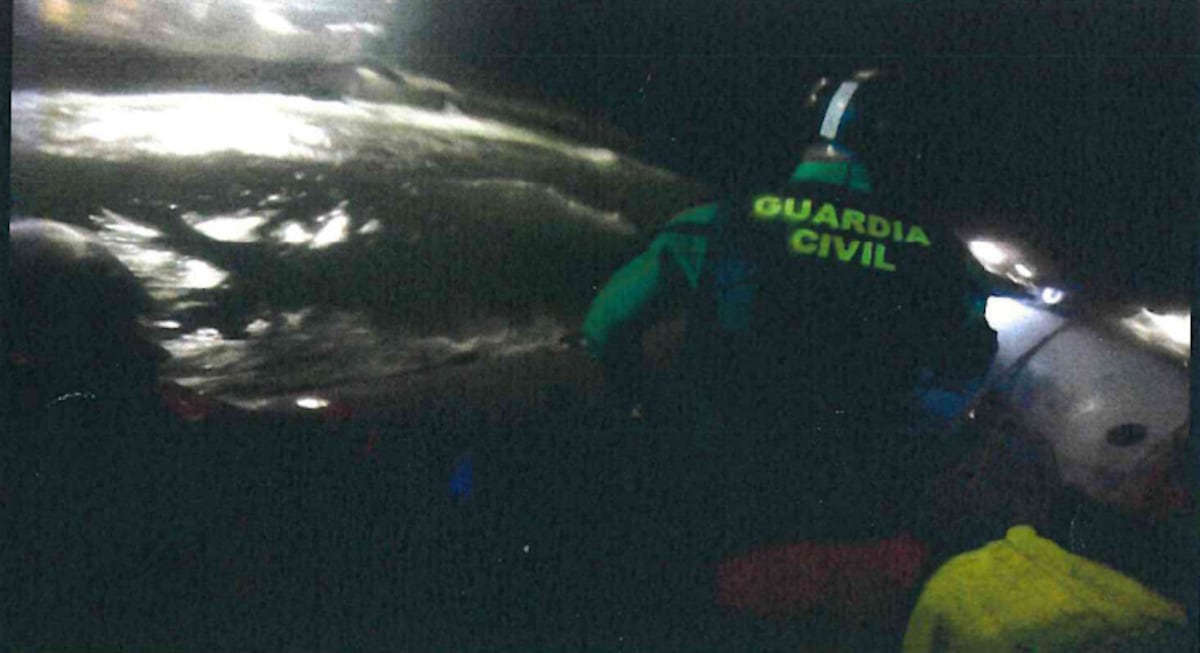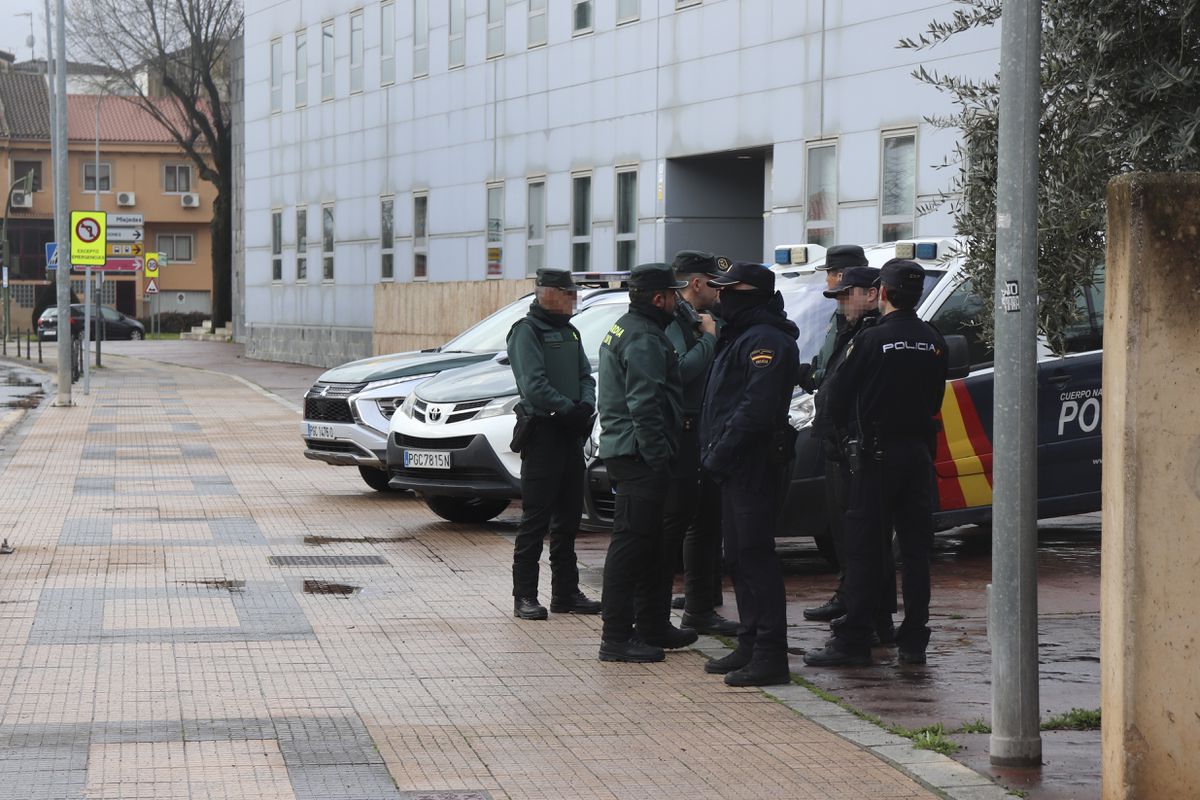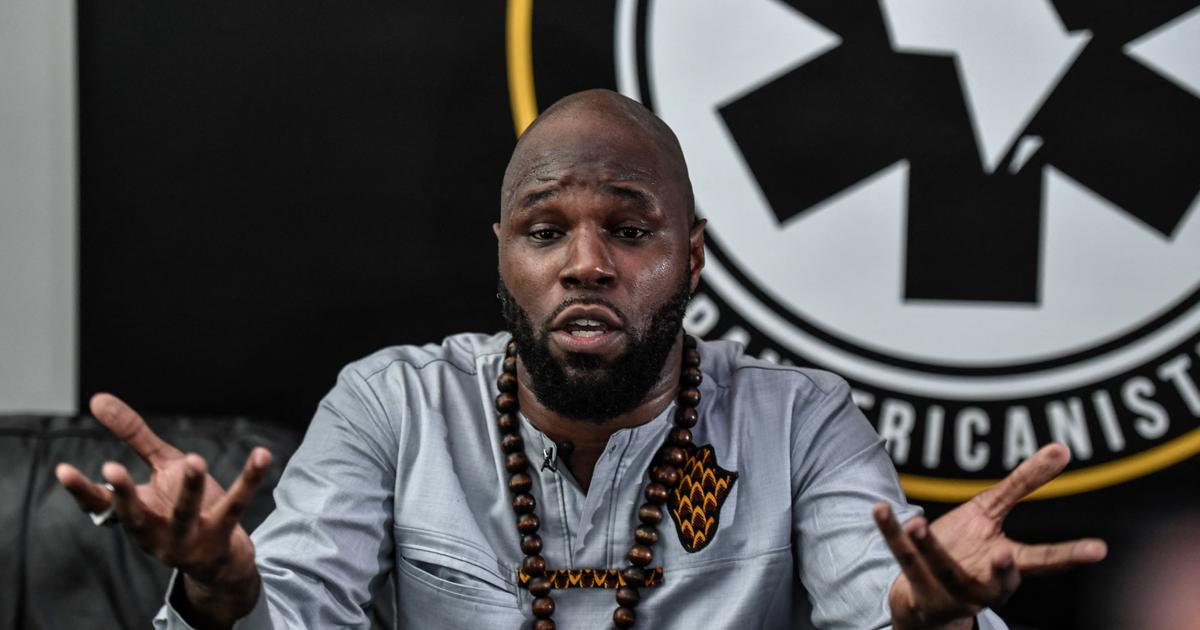Hooded civil guards in an act in the clandestinity of the Unified Union of the Civil Guard (SUGC) in Lleida, in July 1989. Pablo Juliá
The Ministry of the Interior proposes including, in the new Civil Guard personnel law that is finalizing, an additional provision to rehabilitate the four agents who were expelled 25 years ago for promoting the clandestine Unified Union of the Civil Guard (SUGC), according to Several sources from the armed institute have confirmed to EL PAÍS.
They are Sergeant José Morata Gargallo, Corporal Manuel Rosa Recuerda, and the guards José Carlos Piñeiro González and Manuel Linde Falero, the latter already deceased.
The expulsion of all of them materialized definitively in 1997, considering that their involvement in the activities of the SUGC, created in May 1986, then implied conduct seriously contrary to military discipline.
At the end of the 1980s and the beginning of the 1990s, this union carried out press conferences in which agents with hooded tricornes participated in which they demanded labor improvements and the demilitarization of the institution.
Nearly 40 of its members were arrested in those years and many entered military prisons accused of sedition, although the courts finally dismissed the cases against them.
Of the disciplinary files that the Interior opened in parallel, the majority were archived due to formal defects and, of those that were successful, only those of these four agents concluded with the expulsion of the force.
At present, the law still prohibits the civil guards the right to unionize ―of which are deprived, among others, also the military and judges―,
A hooded civil guard, at the presentation of the SUGC in Seville, in August 1986. Pablo Juliá
Three members of the Clandestine Union of the Civil Guard, appear hooded at a press conference to demand the change of the armed institute from a militarized body to a civil guard, in Pamplona, on October 11, 1989. KOTE RODRIGUEZ (EFE)
Two civil guards with their faces hidden during the presentation of the SUGC in Lleida, in 1989. Pablo Juliá
Members of the Civil Guard at a press conference in Bilbao for the presentation of their clandestine union, in June 1988.Luis Alberto Garcia
Three uniformed and hooded civil guards, members of the clandestine Unified Union of the Civil Guard (SUGC), offer a press conference in Logroño on October 3, 1988.EFE
A hooded civil guard at the presentation of the Unified Union of the Civil Guard (SUGC) in Lleida, in July 1989. Pablo Juliá
The measure now proposed by the Interior will be studied this Thursday at the meeting of the Council of the Civil Guard, a collegiate body of an advisory nature made up of equal numbers of representatives of the professional associations of agents and the administration, and in which it will foreseeably be approved.
The process will then begin so that, after receiving the approval of the Ministry of Defense, on which the armed institute also depends, it is sent to Congress to begin the parliamentary process for the final approval of the law that includes the provision.
All this can take about a year, Interior sources explain.
The initiative has a significant symbolic nature and includes a historic claim by the professional associations of the Civil Guard and, in particular, the Unified Association of the Civil Guard (AUGC, heir to the SUGC).
However, its practical effects will be very limited, since the four agents, due to age, will retire and will not return to any position in the armed institute.
Nor will they collect the salaries that would have corresponded to them during these 25 years, although the measure will affect the calculation of the pensions they currently receive, according to the text of the proposal to which EL PAÍS has had access.
"For me, the most important thing is to be able to say again that I am a civil guard," says Sergeant Morata, who is currently 69 years old.
Morata was jailed for 19 days after being arrested in June 1990 when he was national secretary of the SUGC.
His partner Piñeiro, who is now 65 years old, spent more time in pretrial detention.
"A month and a bit," he remembers now.
Piñeiro, who when he was arrested was stationed in the Basque Country during the years of ETA's greatest terrorist activity, considers the Interior's decision “a success.
It is not only a recognition of the four of them, but also of all the civil guards who at that time tried to improve the difficult conditions in which we worked and to democratize the force, ”he adds.
The wording of the provision indicates that the agents and, in the case of the already deceased agent, their relatives will have "a maximum period of two months from the entry into force of the regulation" to request their rehabilitation.
This will include the recognition of the employment "that would have corresponded to them due to seniority" if they had not been expelled.
In the case of Morata, this will mean his promotion to second lieutenant, as detailed by himself.
Despite the limitations, Pedro Carmona, spokesman for the AUGC, applauds the initiative, which he describes as an "act of justice" towards four civil guards whose performance in those years he considers key to "achieving progress in living, professional and economics" that agents currently have.
It is not the first time that the Civil Guard Council has made a gesture towards these four agents.
In June 2021, this body approved a text in which "a mention was made for the civil guards who, from the late 70s and until the early 90s, led to the exercise of this right [of association] today being an evident improvement for the functioning of the Institution”.
In that letter, in which they were cited by name, "the personal and professional cost they assumed" was recognized, although it made it clear that it was not intended to "review what happened, nor question the treatment that the events received at that time that they starred in” and that ended with their expulsion.
Previously, the Congress of Deputies had already approved three parliamentary initiatives in the years 2009, 2013 and 2017 (two non-law proposals from UPyD and one from Citizens) in which the rehabilitation of all of them was requested, but that did not materialize. in any legislative measure.
Subscribe to continue reading
Read without limits
Keep reading
I'm already a subscriber

/cloudfront-eu-central-1.images.arcpublishing.com/prisa/FQO4XM4OBNFXNKXE4RCFO7SNMU.jpg)
/cloudfront-eu-central-1.images.arcpublishing.com/prisa/UNXINWPJOVC53LUXWLDPPPVX7A.jpg)



/cloudfront-eu-central-1.images.arcpublishing.com/prisa/KAMEVPDOXBG7TIMQFEJC6QI7DU.JPG)

/cloudfront-eu-central-1.images.arcpublishing.com/prisa/BOQSH7PVIJAPNOGFOH7TSNBODY.jpg)
